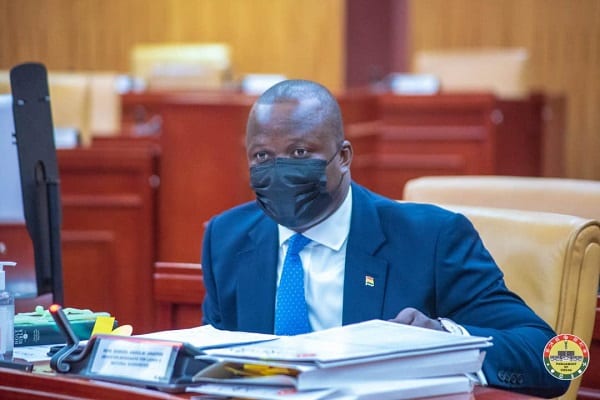Government has said it is working to develop a national carbon policy to, among other things, position the country to fully benefit from the multi-billion dollar emerging global market.
The Minister of Lands and Natural Resources, Samuel Abu Jinapor – who revealed this in parliament, said the move will also help combat climate change.
“A properly regulated carbon market will therefore position us to benefit economically from this new market,” the minister said in his policy statement on development of Ghana’s carbon market as presented to Parliament.
Globally, the carbon market is growing in leaps and bounds. Its traded market value grew 164 percent to US$851billion in 2021, Mr. Jinapor told lawmakers.
The country, he said, is already one of a few that are building end-to-end, state-of-the-art digital infrastructure to support its participation in international carbon markets.
He recognised that the carbon market is a major initiative adopted to halt climate change and spur socio-economic development. But he also noted that the market has been consistently dominated by the private sector and multilateral development organisations.
“Carbon stocks, which are the primary commodity on carbon markets, are however increasingly being treated as a national natural resource asset due to their huge economic potentials,” he said.
Furthermore, Article 6 of the 2015 Paris Agreement, he opined, establishes a mechanism for states to cooperate in different ways to achieve climate goals, including carbon trade.
The Glasgow Climate Pact and the Paris Rulebook have since been adopted to operationalise Article 6 of the Paris Agreement. And part of this allows countries to trade in carbon credits within a carbon market framework generated by the reduction and/or removal of greenhouse gas emissions from the atmosphere.
To this end, the minister said it will be important to define what the national circumstances are and what works best in transacting carbon as a commodity on both voluntary and compliance markets.
“Issues of pricing carbon, national policies on carbon sales and purchases, as well as building infrastructure that allows entry into these markets need to be set by national governments, and thus the need for a domestic policy on carbon markets and trade,” he stated.
Among other initiatives to address the issues of climate change, he indicated that the country is engaged in various international mechanisms within the climate space in different sectors – like forest and land use, energy, transport and waste.
Meanwhile, the country has already signed a Letter of Intent with the Lowering Emissions by Accelerating Forest Finance (LEAF) Coalition, as a first step toward signing a binding emission reductions purchase agreement – to access funds and support forest-based climate actions in the voluntary carbon market.
Despite these, Mr. Jinapor said the country does not have a carbon trading and/or market policy nationally, or for the forestry sector.
It is against this background that he told parliament government wants to develop a carbon market policy.
“This blueprint will lead the way for other sectors to develop their carbon market policies and strategies, and eventually lead to a national carbon policy with the requisite Legislative Instrument for full operationalisation,” he said.
Among other things, it defines the context within which to transact sector carbon sales and purchases, and determines the price to transact a tonne of carbon dioxide – equivalent to greenhouse gas emission reductions and removals.
Also, it will help develop the institutional framework for approvals and no-objection seeking within and across sectors for carbon sales and purchases for both government and private sector engagements; set up a carbon market framework and define which projects/programmes to place on the voluntary or compliance market, among others.
“A domestic framework that allows the approval and registration of mitigation initiatives are necessary for participation in the market-based and non-market cooperation approaches of Article 6 of the Paris Agreement.
“To capitalise on opportunities in the global carbon market, we must strengthen our institutional capacities and develop an authorisation process for international transfers. Treating the nation’s carbon stock as a precious commodity and applying similar regulatory and policy frameworks can create the right environment for this new sector to thrive,” he said.










